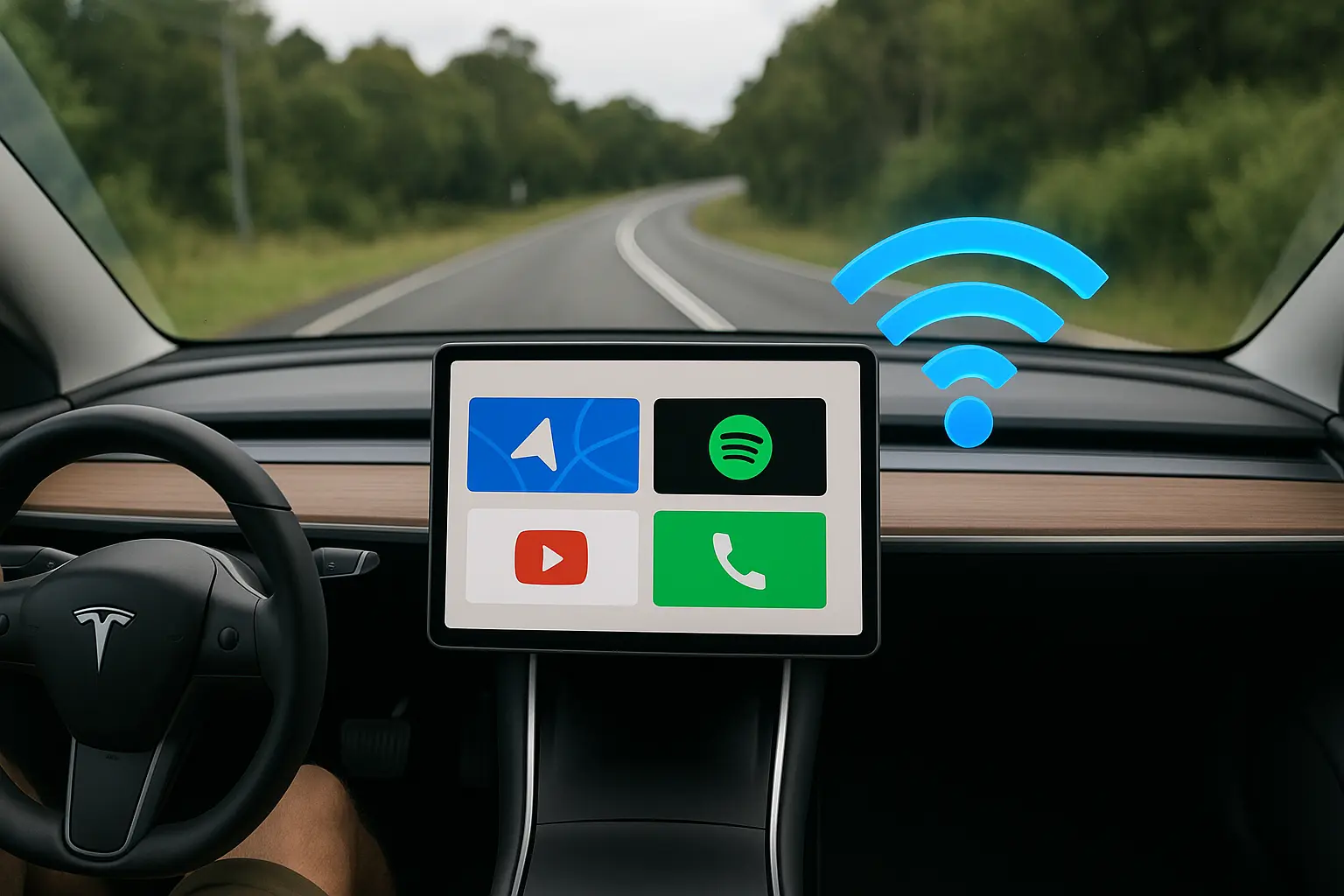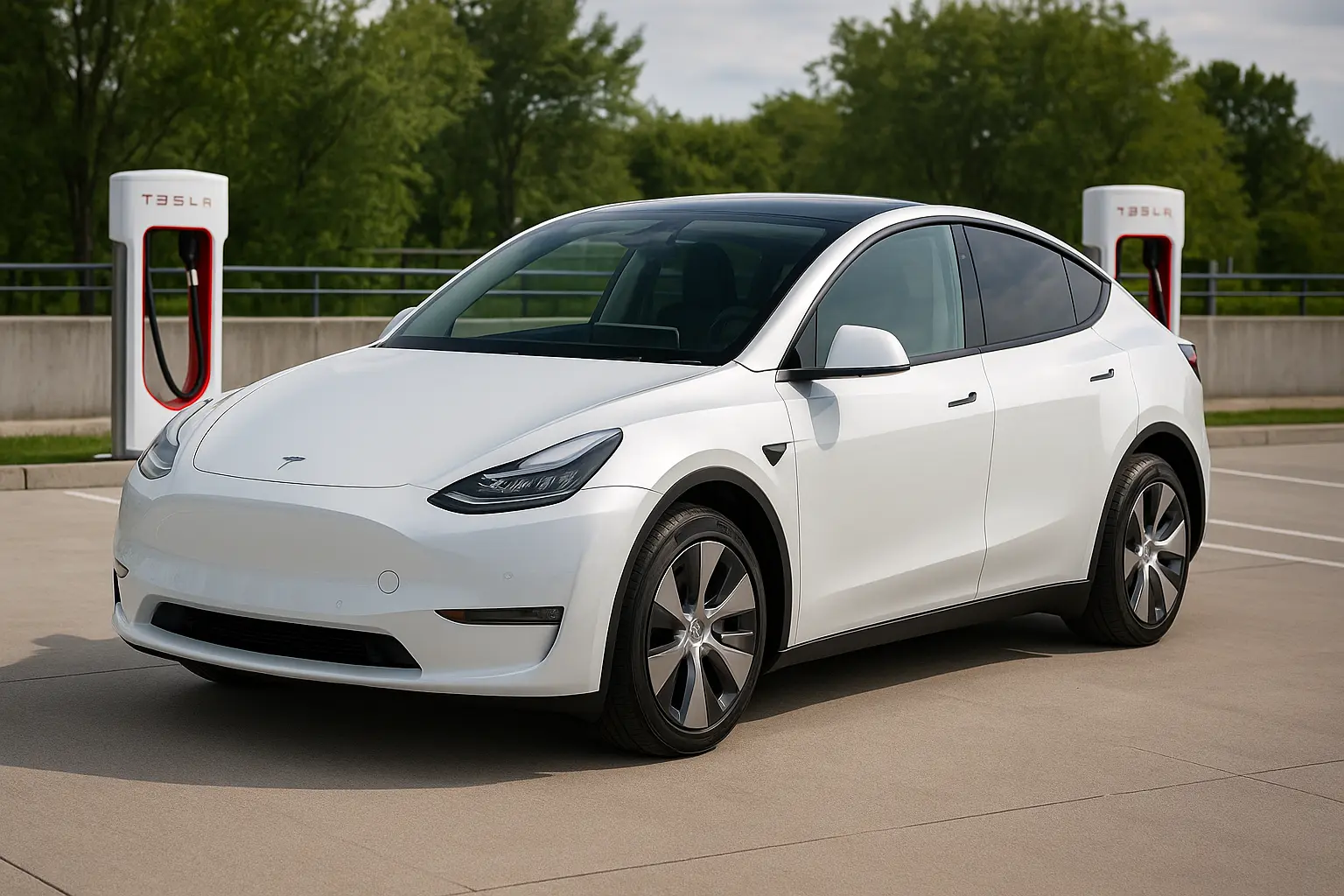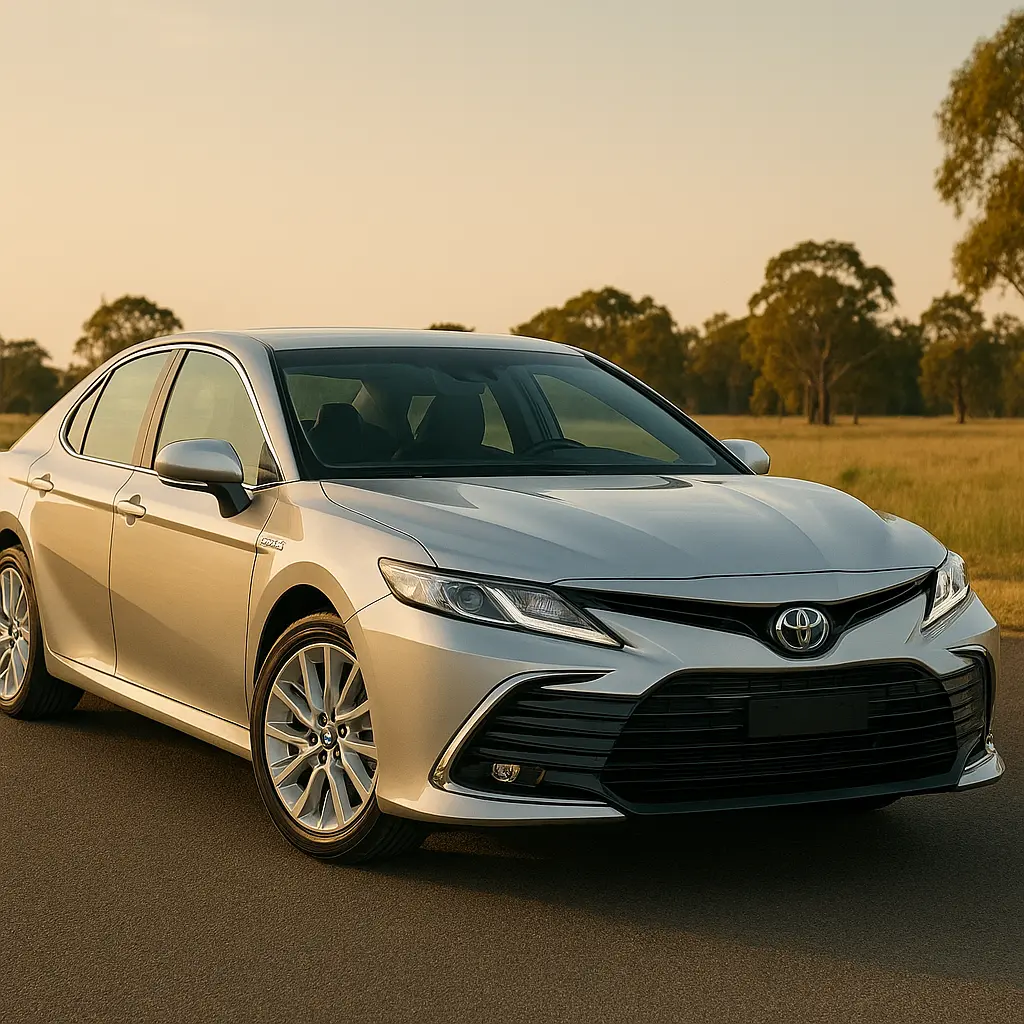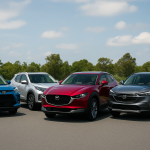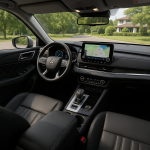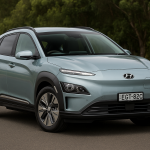2025’s Most Connected Cars in Australia – Built-in Apps & Wi-Fi
The modern car is no longer just a machine—it’s becoming a digital ecosystem on wheels. In 2025, Australia's automotive landscape has fully embraced connectivity, offering smart features like over-the-air updates, built-in apps, seamless smartphone integration, and in-car Wi-Fi that rivals home broadband. This blog dives into the most connected vehicles you can buy in Australia this year, focusing on their infotainment tech, connectivity features, digital services, and user experience.
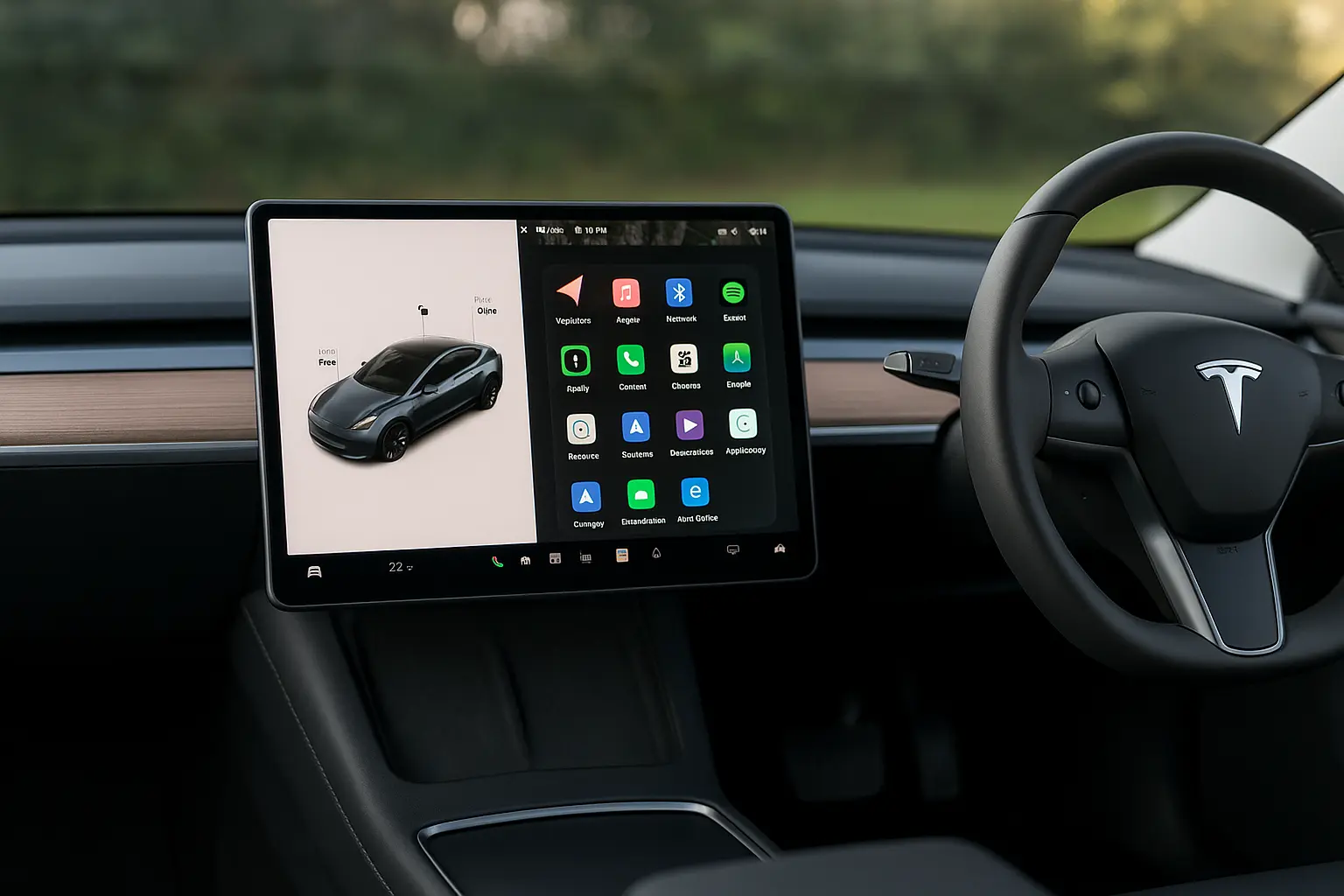
📲 What Makes a Car "Connected" in 2025?
Before diving into the list, let’s define what we mean by a "connected car":
Wi-Fi Hotspot Capability
Vehicles can now provide internet access for passengers, using embedded SIM cards or eSIM tech.Built-In Apps & Services
Streaming apps (like Spotify or Apple Music), navigation (Google Maps, Waze), weather, and voice assistants (Alexa, Google Assistant) are standard in top-tier models.OTA (Over-the-Air) Software Updates
No need to visit the dealer—your car gets updates like your smartphone.Cloud-Based Profiles
Driver preferences (seat position, climate, audio) are saved to the cloud and follow you from car to car.Car-to-Cloud Integration
Apps like Tesla's mobile app, MyBMW, or Hyundai Bluelink provide remote start, charging management, vehicle tracking, and more.
🚗 Top 2025 Connected Cars in Australia
Let’s explore the leading connected cars that are revolutionising in-car tech this year.
1. Tesla Model 3 Highland
Why It Stands Out:
Tesla is still leading the tech race. The 2025 Highland update brings a sleeker design, better materials, and a fully revamped UI.
Top Connected Features:
Seamless Tesla app integration
Full self-driving (FSD) software (subscription)
OTA updates every few weeks
Wi-Fi hotspot via mobile tethering
Streaming services (YouTube, Netflix, Spotify)
Tesla Arcade and built-in web browser
Bonus: Tesla’s operating system runs on a proprietary OS that rivals Apple’s in responsiveness.
2. BMW iX and i4 (2025 Models)
Why It Stands Out:
BMW’s iDrive 9 and the MyBMW app ecosystem set benchmarks for connected luxury.
Top Connected Features:
Augmented reality navigation
Personal voice assistant ("Hey BMW")
Over-the-air updates with new features like remote parking
Full Android Auto & Apple CarPlay wireless
Built-in Amazon Alexa and Spotify
Extra Perk: Digital Key Plus allows you to unlock and start the car using your smartphone (or Apple Watch).
3. Hyundai Ioniq 5 and Ioniq 6
Why It Stands Out:
These EVs are not just stylish—they’re loaded with tech designed to make ownership smarter.
Top Connected Features:
Hyundai Bluelink app with remote climate control and charging
OTA updates for maps and software
Voice commands and AI assistant
Wireless Apple CarPlay and Android Auto
Car-to-Load (V2L) system for external appliance usage
Special Note: Hyundai’s UI is one of the most intuitive among mainstream brands.
4. Kia EV9
Why It Stands Out:
As Kia’s flagship electric SUV, the EV9 competes directly with premium brands in the tech space.
Top Connected Features:
Full-width curved display with integrated infotainment and digital cluster
Kia Connect app with EV-specific tools (e.g. charge scheduling)
OTA updates
Wi-Fi capability via SIM
Wireless phone mirroring and charging
Standout: Kia is the first mainstream brand offering digital feature-on-demand upgrades (e.g. heated seats, driving modes).
5. Volvo EX30
Why It Stands Out:
This compact EV is affordable yet tech-rich.
Top Connected Features:
Google built-in (Google Maps, Assistant, Play Store)
OTA updates
App-based vehicle control (lock/unlock, climate, etc.)
Digital key and user profiles in the cloud
Apple CarPlay wireless
Why It Matters: Volvo prioritises minimalist UX but doesn’t skimp on digital depth.
6. Mercedes-Benz EQS and EQE
Why It Stands Out:
MBUX Hyperscreen is a masterclass in tech-driven luxury.
Top Connected Features:
AI-based user interface that learns driver habits
Augmented reality HUD
OTA updates for vehicle functions and apps
Voice command ("Hey Mercedes")
Built-in games, browser, and multiple user profiles
Extra: Mercedes Me Connect app enables full car control remotely.
7. Ford Mustang Mach-E
Why It Stands Out:
Ford’s SYNC 4A infotainment and over-the-air capability modernises their electric line-up.
Top Connected Features:
FordPass app for remote vehicle management
OTA software and firmware updates
Built-in navigation with EV routing
Large portrait infotainment display with custom tiles
Wi-Fi connectivity
Highlight: Driver profiles sync with the FordPass app for a personalised experience.
8. Toyota bZ4X
Why It Stands Out:
Toyota’s first dedicated EV for Australia takes connectivity seriously.
Top Connected Features:
MyToyota Connect app for remote diagnostics and location
OTA updates
Digital key and cloud-based navigation
Voice assistant integration
Wireless smartphone mirroring
Appeal: Combines Toyota’s reliability with cutting-edge tech.
9. Polestar 2 (2025 Refresh)
Why It Stands Out:
Android Automotive OS, no phone required.
Top Connected Features:
Native Google system: Assistant, Maps, Play Store
OTA updates for the operating system and features
Remote start and monitoring via Polestar app
Real-time traffic and Google Voice Navigation
Wi-Fi hotspot
Edge: App functionality continues to improve with every update.
10. MG4 EV and ZS EV (2025 Updates)
Why It Stands Out:
MG proves budget EVs can be smart too.
Top Connected Features:
MG iSmart app for vehicle status, location, and aircon controls
Built-in infotainment with voice command and OTA update support
Real-time energy monitoring
Apple CarPlay and Android Auto standard
Big Win: These are some of the most affordable connected cars on the market.
🔧 How In-Car Tech Is Changing Ownership in Australia
Smart cars aren’t just about gadgets—they’re changing the way Australians drive, buy, and maintain vehicles.
Benefits of Connected Cars:
Safety: Real-time alerts, emergency services, and vehicle tracking.
Convenience: Unlock/start your car with your phone, set climate in advance.
Updates: No more outdated maps or infotainment systems.
Diagnostics: Monitor tyre pressure, battery health, and servicing via apps.
Entertainment: Stream your favourite content on the go.
💡 Popular In-Car Features in 2025
These features are nearly standard in most connected vehicles today:
Voice Control Integration (Alexa, Google Assistant)
Real-Time Traffic and EV Routing
Digital Clusters & Augmented Reality HUDs
Built-in Navigation with Live Updates
Cloud-Synced Driver Profiles
App Marketplace (Tesla, BMW, Polestar)
Remote Diagnostics & Software Upgrades
📉 Downsides and Concerns
Even as connectivity grows, there are a few watch-outs:
Privacy: Cars collect significant amounts of data.
Subscription Fatigue: Some features are behind paywalls.
Connectivity Dependence: Internet or mobile service outages may limit features.
Repair Complexity: Advanced systems require specialised tech support.
🔮 What’s Next for Connected Cars in Australia?
Expect rapid growth in the following:
5G in Cars: Faster, more reliable connections.
AI Personal Assistants: Predict your needs (routes, climate, podcasts).
Vehicle-to-Everything (V2X): Cars talking to traffic lights, other vehicles, even infrastructure.
More OTA Upgrades: Not just apps—your suspension, braking, and handling could be fine-tuned remotely.
EV-Specific Features: Charge optimisation, grid integration, battery pre-conditioning.
📝 Final Thoughts – Should You Buy a Connected Car?
If you're in the market for a new vehicle in 2025, choosing a connected car offers serious advantages—especially for commuters, families, tech enthusiasts, and EV owners. It’s not just about luxury anymore; connected tech has trickled down into budget-friendly models like the MG4 and Hyundai Kona Electric.
Whether you want a fully immersive screen experience or simply want the convenience of remote locking, these features are no longer futuristic—they’re standard in 2025.
Leave a comment
Your email address will not be published. Required fields are marked *


